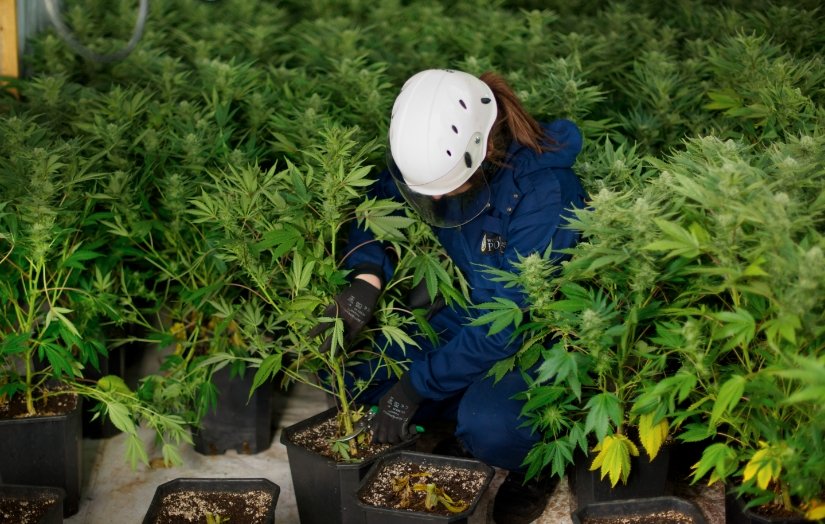The Cannabis Administration and Opportunity Act
Senate Majority Leader Chuck Schumer and two other senators have introduced a draft bill that would end the federal prohibition on marijuana and allow states to decide their own cannabis policies. The bill, called the Cannabis Administration and Opportunity Act, would remove marijuana from the Controlled Substances Act and create a regulatory framework for its production, distribution, and taxation. The bill would also expunge federal records of nonviolent marijuana offenses and invest in programs to support communities harmed by the war on drugs.
The bill is the most comprehensive cannabis reform proposal ever introduced in Congress, and reflects the growing public support for legalization. According to a Gallup poll, 70% of Americans favor legalizing marijuana, and 38 states have already enacted some form of cannabis legalization, either for medical or recreational use. However, the bill faces an uphill battle in the Senate, where it needs at least 10 Republican votes to overcome a filibuster.
The Benefits of Legalization
The sponsors of the bill argue that legalization would have multiple benefits for the country, such as:

- Reducing the racial disparities in the criminal justice system, as people of color are disproportionately arrested and incarcerated for marijuana offenses, despite similar rates of use among different groups.
- Generating revenue for the federal government and the states, as the bill would impose a 10% excise tax on cannabis products, which would gradually increase to 25% over five years. The bill would also allow cannabis businesses to access banking services and deduct their expenses from their taxes, which are currently prohibited under federal law.
- Enhancing public health and safety, as the bill would establish standards for testing, labeling, and packaging of cannabis products, and fund research on the effects of marijuana on health and driving. The bill would also restrict the marketing and advertising of cannabis to minors, and require the Department of Health and Human Services to conduct a study on the impact of legalization on youth.
The Opposition to Legalization
Despite the growing momentum for legalization, the bill faces strong opposition from some lawmakers and groups, such as:
- President Joe Biden, who has not endorsed the bill and has expressed reservations about legalizing marijuana at the federal level. Biden has said he supports decriminalizing marijuana and rescheduling it to a lower category of the Controlled Substances Act, which would reduce the penalties for possession and allow more research on its medical benefits.
- Some Republicans, who have criticized the bill as a radical and reckless move that would undermine the rule of law and endanger public health and safety. They have also questioned the timing of the bill, given the ongoing challenges of the Covid-19 pandemic and the economic recovery.
- Some anti-drug organizations, who have warned that legalization would increase the availability and potency of marijuana, and lead to more addiction, mental health problems, and impaired driving. They have also argued that legalization would not eliminate the illicit market, but rather create a new industry that would lobby for more profits and less regulation.
The Future of Cannabis Reform
The Cannabis Administration and Opportunity Act is unlikely to pass in its current form, as it faces significant political and practical hurdles. However, the bill is expected to spark a debate and a dialogue on the issue of cannabis reform, and potentially pave the way for more incremental and bipartisan changes. Some of the possible alternatives or compromises include:
- The SAFE Banking Act, which would protect banks and financial institutions that serve cannabis businesses from federal prosecution and penalties. The bill has already passed the House of Representatives with broad support from both parties, and has been endorsed by the banking industry and some law enforcement groups.
- The MORE Act, which would also remove marijuana from the Controlled Substances Act and expunge federal records of marijuana offenses, but would not create a federal regulatory framework for cannabis. The bill has also passed the House of Representatives, but with mostly Democratic votes, and has been opposed by some Republicans who prefer a state-based approach.
- The STATES Act, which would amend the Controlled Substances Act to exempt state-legal cannabis activities from federal interference and enforcement. The bill has been co-sponsored by some Republicans and Democrats, and has been supported by some cannabis industry groups and advocates who favor states’ rights and federalism.



